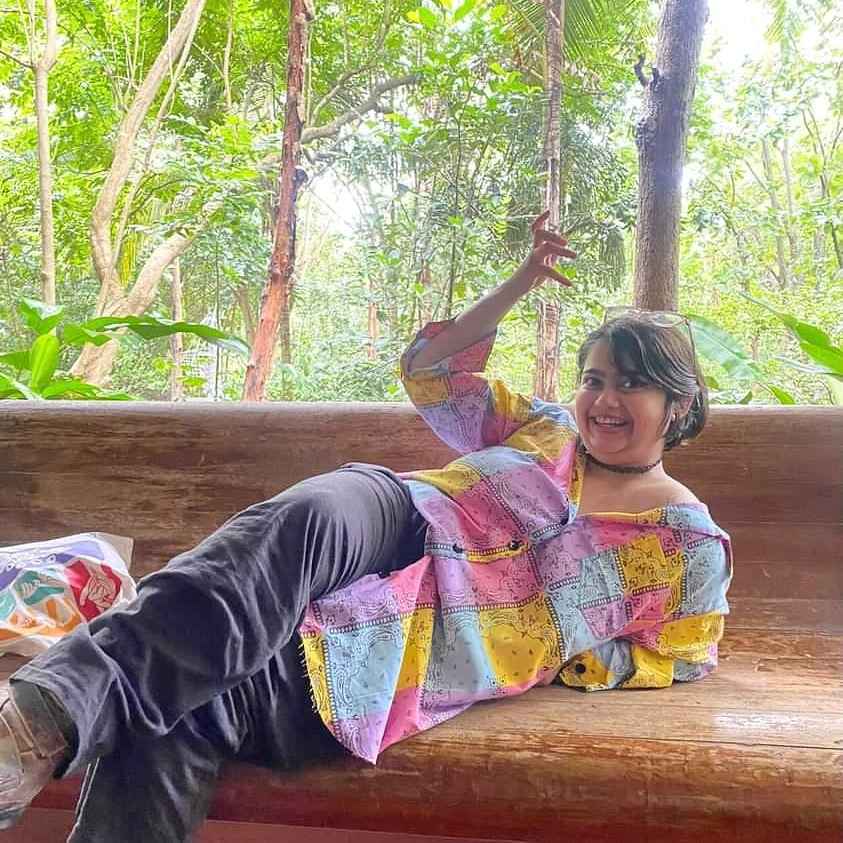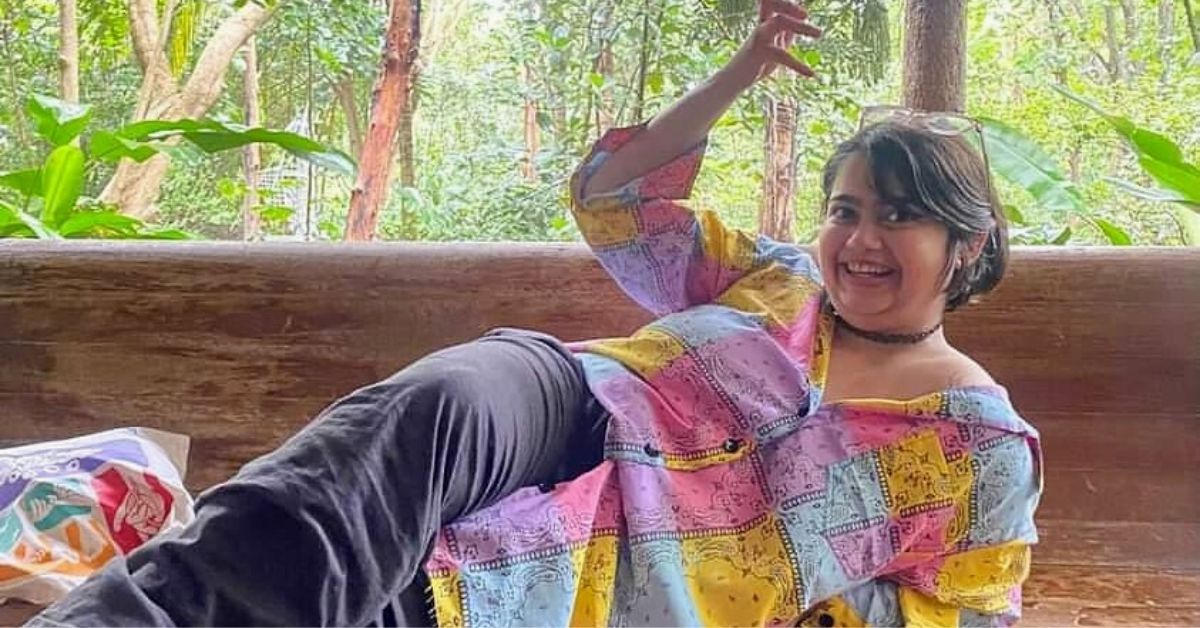“For disabled women, the road to discovering our sexuality is lonely,” says 24-year-old Nu Misra from Delhi.
Describing themself as an activist, Nu, who has an acquired physical disability, says that they are simply trying to shatter the narrative built around disabled people — one of pity and praise.
“We’ve all been gaslighted time and again by a society that refuses to acknowledge and truly listen to disabled voices,” they say in conversation with The Better India.
Instances through their teen years made them privy to the “otherness” that people assigned to them.
“I’d notice people’s gaze change when they laid their eyes on me at airports, grocery stores, malls…So I learned a trick to deal with it. I would take off my spectacles whenever I was in a public place so that I wouldn’t notice them staring at me.”
Nu adds that while the trick worked perfectly well around strangers, their brain began looking for this “gaze” as they turned 18 and started going on dates.
“I was fixated on the idea of my date accepting me for who I was,” they say. Only when this realisation hit did Nu realise that society had crafted insensitive stereotypes that revolve around disabled people and their sexuality.

‘I don’t want to be pitied’
As a queer disabled person, Nu’s sexuality has been questioned time and again. They have often been viewed by society or even peers as “too disabled” and “too weak” to be sexual or engage in sexual intimacy, they say.
They also note that growing up disabled is not the easiest thing, especially during the adolescent years. “Disabled people are often taught that only a certain kind of ability is capable of being attractive, falling in love, getting married, or settling down.”
Nu says that due to this worldview, they began doubting every potential partner’s affection when it came to relationships. Slowly, an unhealthy pattern began emerging.
“I would date the very first person who accepted me for who I was, even if they were grossly incompatible, controlling, patronising, and chauvinistic. One time, I even stayed in an abusive relationship for a year and a half simply because I never believed anyone would accept me as I was.”
“It was only later that I realised I was settling in almost all of my relationships,” they add. “I was settling for anyone who accepted me and my disability, regardless of their abusive nature or if they were actually meant for me.”
And while sometimes it was the partner who was toxic, Nu says other times, it was family.
‘Families don’t want their children to date people who are disabled.’
Having dated able-bodied men all through life, Nu would notice how their families were quick to be “concerned” about their sons choosing a disabled woman. When Nu shared their concerns with female friends who were also disabled, they realised this was a common problem.
“I realised that able-bodied people are terrified of disability,” they say.
“This is a very common feature,” says Nu, adding that they have seen instances where a friend’s boyfriend immediately broke up with her when she started limping due to her disability.
This was even their own case.
“I dated someone whose mother told him that I wouldn’t be a suitable partner and that he ‘shouldn’t get into all this’. She then proceeded to compare me with another family member in a wheelchair, even though she had never met me and didn’t know what my disability was.”
These harsh realities, cruel as they may be, changed Nu for the better. Today, as they are more informed and thick-skinned, wary about the kind of criticism they let in, Nu shares a piece of advice.
‘When you’re in a relationship with someone disabled, listen.’
“Don’t assume, and make room for your partner’s disability in the relationship. There is a difference between dependence and agency. Help them only when they need it,” they say.
Another thing to bear in mind, says Nu, is that you aren’t doing your disabled partner a favour by helping them. “This is not a transaction. This is a relationship.”
But while Nu navigates the intricacies of sexuality and dating, they say what they inherently wanted to do was rewrite the script that society had taken upon itself to do. They wanted disabled people to tell the story like it is, without society’s patronising gaze.
So, in 2020, Nu started a platform Revival Disability India to take the first step to achieving this.
A sense of belonging
“I believe that there is power in disabled dissent,” they say, pointing to the precursor behind Revival Disability — a community where disabled people have a safe space to share and engage with others.
Nu says the very act of forming a disability collective in a country where they are extremely invisibilised and dehumanised was an act of dissent. “I was creating my own space of collective joy, a space that honoured my disabled creativity and spoke my language.”
Another reason behind starting this venture, is Nu’s belief that no one should feel alone.
“I had to navigate the road to my identity all alone. I had a speech disability and was the only visibly physically disabled child in my class. I’ve never felt like I truly belonged to any of the educational institutions I went to,” they say.
And so, for everyone who feels different and lost, Revival Disability is a space where they are just allowed to be and exist, in whichever way they desire.
The team now comprises three people and focuses on regular mental health check-ins and sharing circles. The community has grown over the years into a safe space for many disabled people to feel like a part of the big wide world.
As for Nu, they are content at having created something that touches upon an issue so close to their heart.
“I made up my mind that if society doesn’t allow us at their table, we’re gonna bring our own accessible chairs with armrests and plenty of cushions.”
If you found our stories insightful, informative, or even just enjoyable, we invite you to consider making a voluntary payment to support the work we do at The Better India. Your contribution helps us continue producing quality content that educates, inspires, and drives positive change.
Choose one of the payment options below for your contribution-
By paying for the stories you value, you directly contribute to sustaining our efforts focused on making a difference in the world. Together, let's ensure that impactful stories continue to be told and shared, enriching lives and communities alike.
Thank you for your support. Here are some frequently asked questions you might find helpful to know why you are contributing?

